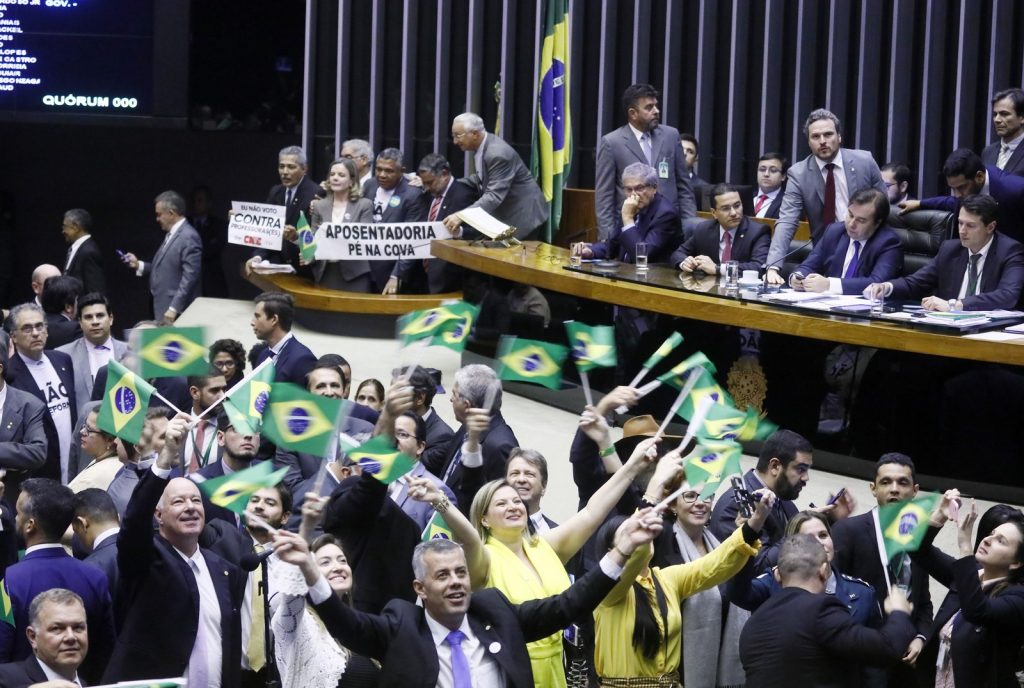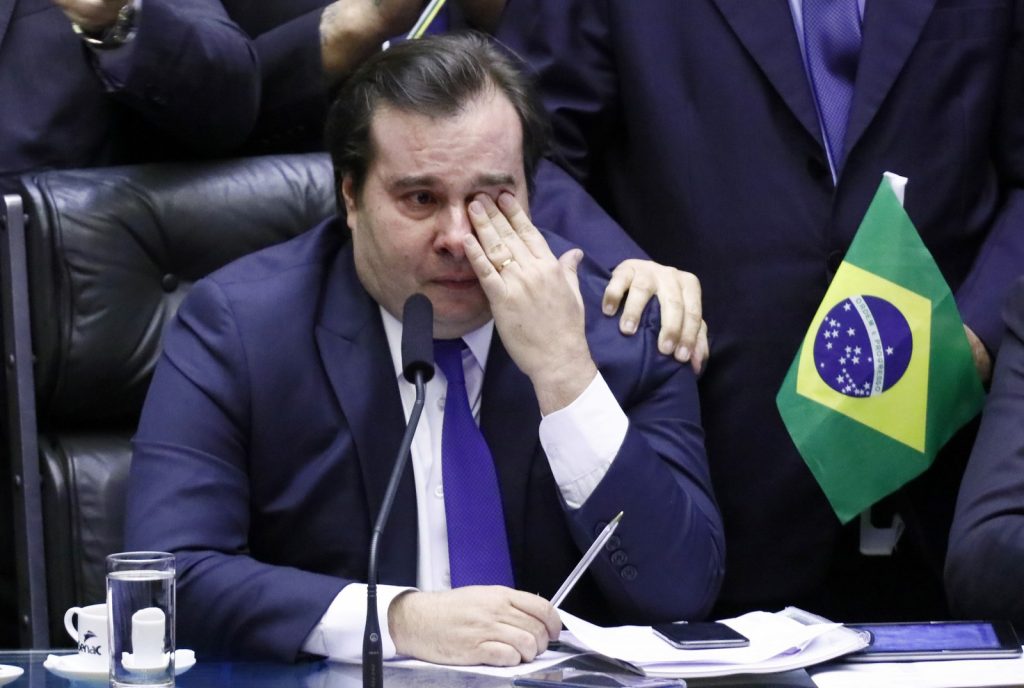RIO DE JANEIRO, BRAZIL – The Social Welfare reform was passed in the first round of voting by the full Chamber of Deputies, with 379 votes in favor, 131 against and no abstentions, on Wednesday night, July 10th.
Approval was expected, although the margin of success was surprising. As it was a constitutional amendment, the minimum requirement was 308 votes, and the government hoped to achieve up to 355 votes, said earlier today the Presidential Chief of Staff, Onyx Lorenzoni.

“The Centrão parties, who nobody really knows what they stand for, is who is passing the bill,” said the Chamber of Deputies’ president, Rodrigo Maia, in a speech just before the result was announced.
The “Centrão” is considered the “kingmaker” force in many votes and basically, a central voting bloc within Congress comprised of a bloc of center-right political parties.
Regarded as the main guarantor of the bill, Maia emphasized the prominence of the Legislature, did not mention president Jair Bolsonaro and even cried after the vote.
Addressing Onyx, he further said that “we will need to have a different relationship from now on” and that “a long-term investor does not invest in a country that attacks institutions.”
According to a Reuters source, Economy Minister Paulo Guedes watched the voting in his cabinet, where he was applauded and reciprocated by congratulating his team members.

Bolsonaro followed the voting on television, according to government spokesman Otávio Rêgo Barros, but remained in contact with government leaders. He celebrated his victory on social media.
The session started at around 10:30 AM and the debate on the basic text began around 5 PM. After the first vote, the agenda was being voted on when the session closed, to be resumed on Thursday, July 10th.
The PEC (Proposed Constitutional Amendment)
Approval takes place four and a half months after Bolsonaro’s proposal reached Congress.
It is regarded as the main measure to contain spending in order to reverse the deficit trajectory and the increase in public debt. If it remains unaltered, it should represent R$933 (US$253) billion in savings for the federal government over the next ten years.
The bill introduces a minimum retirement age for all, increases the minimum contribution time for men and establishes progressive contribution rates for civil servants, among other changes.
Alterations in rural retirement and the continuous cash benefit were removed during the discussion in the special committee, as well as the concept of capitalization. State and municipal civil servants were also left out, even though they may be re-included at a later stage.
Next Steps
According to the Chamber’s rules of procedure, between the first and second rounds of voting a five-session break is required, but it is expected that a vote will be taken to override this interval.
After being passed by the Chamber of Deputies, the bill must also be approved by two-thirds of the full Senate, which should happen after the parliamentary recess that occurs between July 18th and August 1st. Only then would it be submitted for presidential sanction and become law.
The financial market was anticipating approval. The dollar fell 1.30 percent during the day, the highest daily drop in almost a month and a half, reaching its lowest level since the end of February.
The Ibovespa index, on the other hand, reached a new high of 1.23 percent, at 105,817.06 points.

